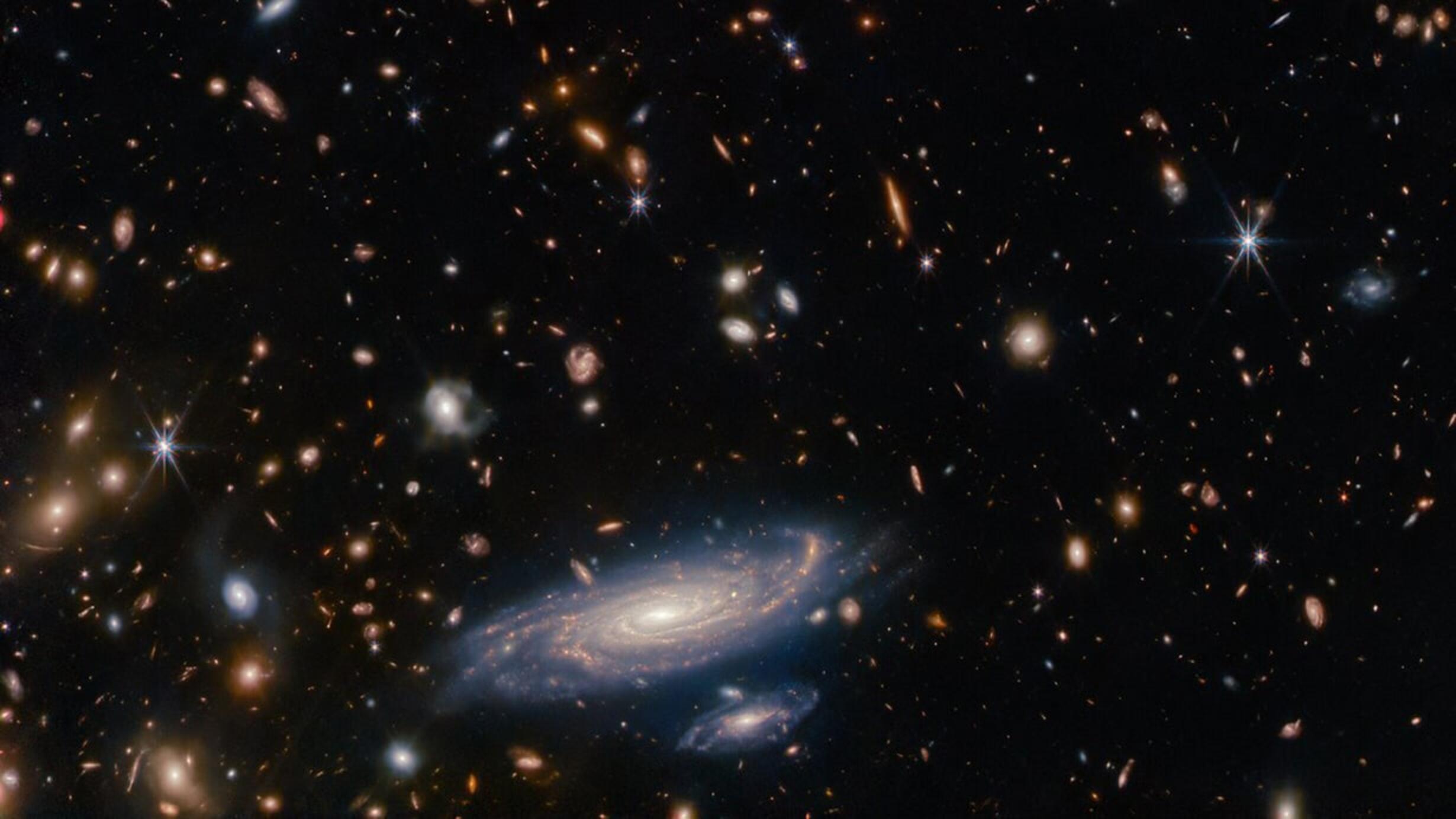2024 Isaac Asimov Memorial Debate: JWST’s Cosmic Revolution
Tuesday, March 19, 2024
 ESA/Webb, NASA & CSA, A. Martel
ESA/Webb, NASA & CSA, A. Martel Join Neil deGrasse Tyson, the Frederick P. Rose Director of the Hayden Planetarium, and a panel of leading scientists and experts for a spirited conversation around the profound impact NASA’s James Webb Space Telescope is having on our understanding of the universe since it began transmitting images and astronomical data in 2022.
Delving into the cosmic mysteries unraveled by the JWST, the discussion will explore the telescope’s recent revelations, including bright and enigmatic galaxies that emerge in the extremely early universe–challenging conventional cosmological understandings of how galaxies formed.
Panelists
Mike Boylan-Kolchin is a theoretical astrophysicist and a Professor of Astronomy at the University of Texas at Austin. Boylan-Kolchin studies the physics of galaxy formation, dark matter, and cosmological structure formation from cosmic dawn to the present day. His work combines numerical simulations, analytic models, and observations.
Wendy Freedman, the John and Marion Sullivan University Professor of Astronomy and Astrophysics at the University of Chicago, is a science communicator and an observational cosmologist who studies and measures the current expansion rate of the universe using large optical telescopes, including the Hubble Space Telescope. She currently heads a program focused on improving the accuracy of measurements using the James Webb Space Telescope to measure the continuing expansion of spacetime.
Priya Natarajan, the Joseph S. and Sophia S. Fruton Professor of Astronomy and the Director of the Franke Program in Science and the Humanities at Yale University, is a theoretical astrophysicist who studies cosmology, gravitational lensing, and supermassive black holes. Driven by her fondness of cartography as a little girl, she is now a pioneer in the technique of mapping cosmology’s ‘terra incognita,’ dark matter and its granularity. She is also recognized for seminal contributions to our understanding of the formation of the first black holes, their assembly history and the role of supermassive black holes in shaping their larger scale cosmic environments.
Rachel Somerville, Senior Research Scientist at the Center for Computational Astrophysics at the Flatiron Institute, is a computational astrophysicist whose research focuses on the physics behind the formation of galaxies and supermassive blackholes. In 2013, she was awarded the Dannie Heineman Prize for Astrophysics for providing fundamental insights into galaxy formation and evolution using semi-analytic modeling, simulations, and observations. She is a member of the Cosmic Evolution Early Release Science Survey (CEERS) team, which planned and executed some of the first observations with the James Webb Space Telescope.
John Wise, Professor of Physics and Director for the Center for Relativistic Astrophysics at the Georgia Institute of Technology, is a computational astrophysicist interested in the formation of stars, galaxies, and black holes in both the distant, and nearby universe. He is one of the lead developers of the community-driven, open-source astrophysics code Enzo and has vast experience running state-of-the-art simulations on the world’s largest supercomputers.
The late Dr. Isaac Asimov, one of the most prolific and influential authors of our time, was a dear friend and supporter of the American Museum of Natural History. In his memory, the Hayden Planetarium is honored to host the annual Isaac Asimov Memorial Debate—generously endowed by relatives, friends, and admirers of Isaac Asimov and his work—bringing the finest minds in the world to the Museum each year to debate pressing questions on the frontier of scientific discovery.
Proceeds from ticket sales of the Isaac Asimov Memorial Debates benefit the scientific and educational programs of the Hayden Planetarium.